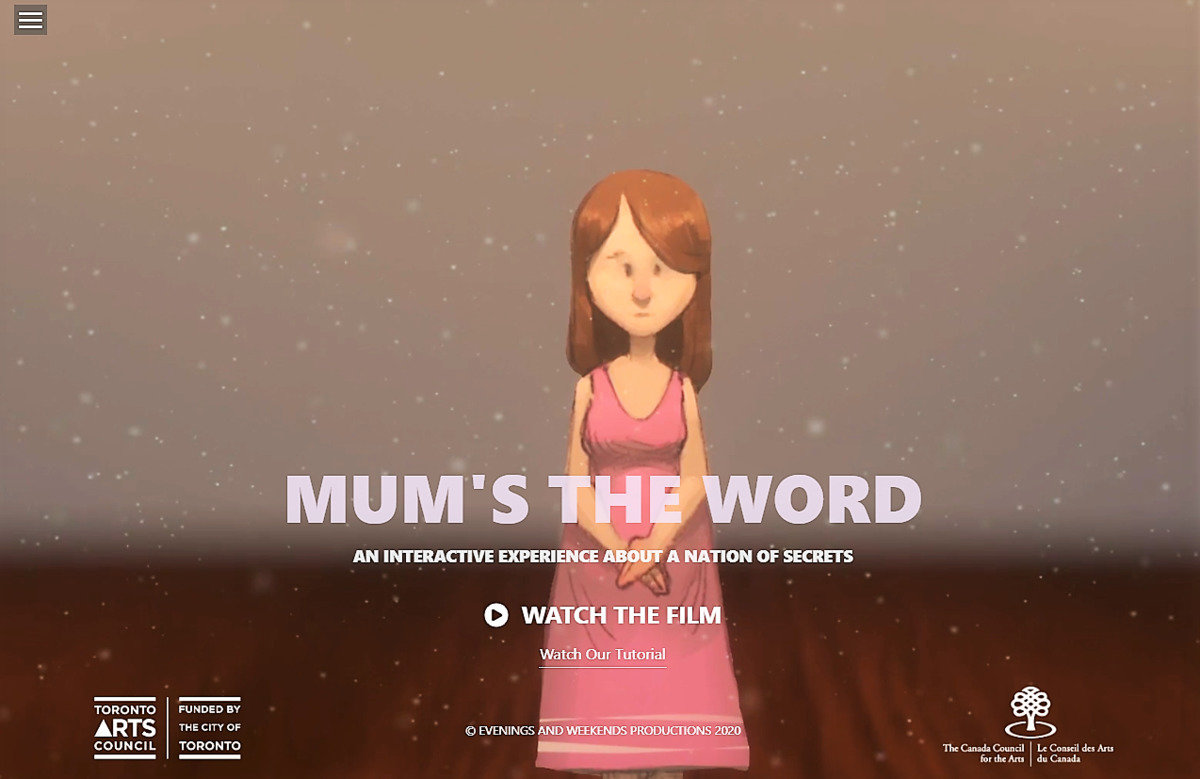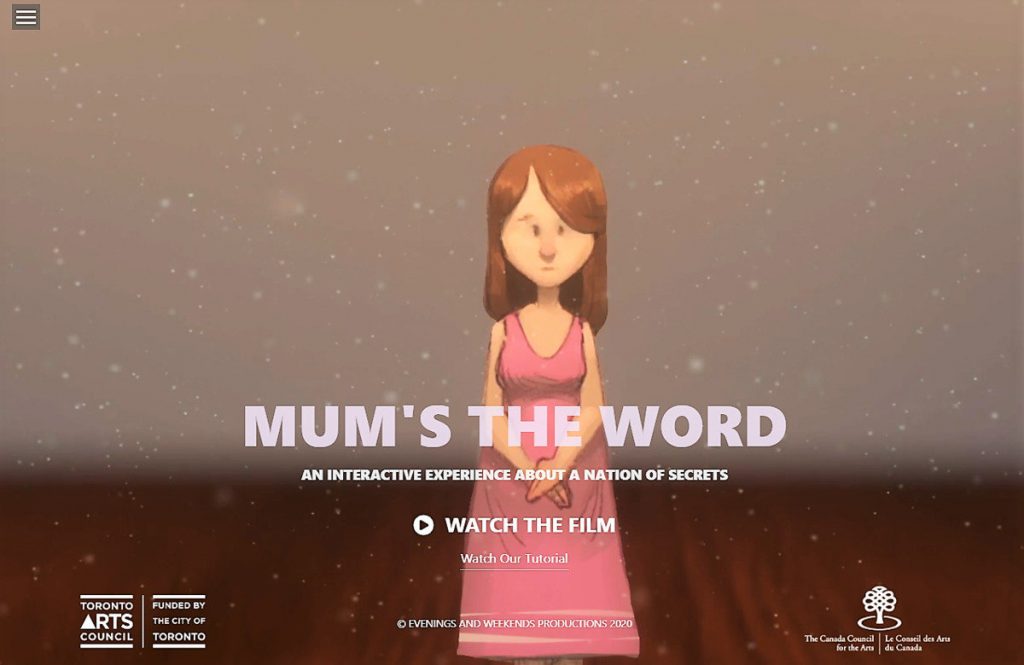

Mum’s the Word is an “interactive documentary” that gives voice to some of the hundreds of thousands of Canadians over the last century victimized by what is being called the post-war adoption mandate.
The online resource includes maps, statistics, and an ongoing petition, but the main feature of the website is a series of interviews of the affected mothers and children.
The tone of the interviews, which are organized into chapters, is intimate and the feelings potent and raw. In the first, one can listen to a woman simply called Sharon relate how her parents reacted to news of her teenage pregnancy by locking her outside in the snow on Christmas day.
In the next chapter, Theresa recounts how she was pressured to go to pregnancy centre that suppressed her sense of dignity, social connection, and realistic consideration of any option but to give up her child.
In a following chapter, a man called Daniel openly weeps describing his experience on the child’s side of this process.
Where we might expect anger, poisoned words, and vitriolic attacks against these persons’ offenders, we instead find seasoned grief, tender bewilderment, and most of all enduring, unhealed pain.
And this is why it works.
Rather than knocking us back on our heels and demanding we, anybody, do something now, the interviews implicitly ask us simply to listen to what has already been done.
The result is we cannot help but want something to happen now.
But exactly what should happen is not quite so obvious.
The knee jerk reaction in our era is to demand justice – to track down those persons and institutions responsible and insist upon reparation: an apology, perhaps a financial settlement.
But what happens when the individuals are nowhere to be found and the institutions no longer exist?
The post-war adoption mandate has been described as a “perfect storm” of urbanization, eugenics, social work, medical advances, and other factors of the time. In other words, a real wrong was perpetrated by a rather nebulous collocation of contributors.
So, a definite violation has taken place (or several hundred thousand violations), but with responsibility diffused amongst so many, whom can we reasonably hold to account?
What does justice look like for these mothers and children, some half a century after the fact? What can you or I do?
I, for one, am not sure. There are apologies and financial restitution, which would probably seem strange coming from many of us.
But there may also be an alternative. And that is responding to outraged justice not with reconciliatory justice but with mercy.
Catholic tradition speaks of “works of mercy,” which include not only corporal works like feeding the hungry and sheltering the homeless, but also spiritual works like comforting the afflicted and bearing patiently those who wrong us.
Such works are undertaken not strictly on the basis of rights and obligations, that is, of what is dutifully owed. Rather, works of mercy are undertaken on the basis of what is deeply needed.
Here is a need – for acknowledgment, apology, compassion, assistance – which we as a community might respond to. Not because any particular one of us here today has committed this particular wrong, but because someone dear to us (and more importantly, someone dear to the One Most Dear) has been wronged. Encouraging this is work some of us might do. And since supererogatory generosity is a kind of work better served by persons than committees, some of us might need to volunteer.
So, watch the interviews. See how they move you.
Perhaps this could be you?
